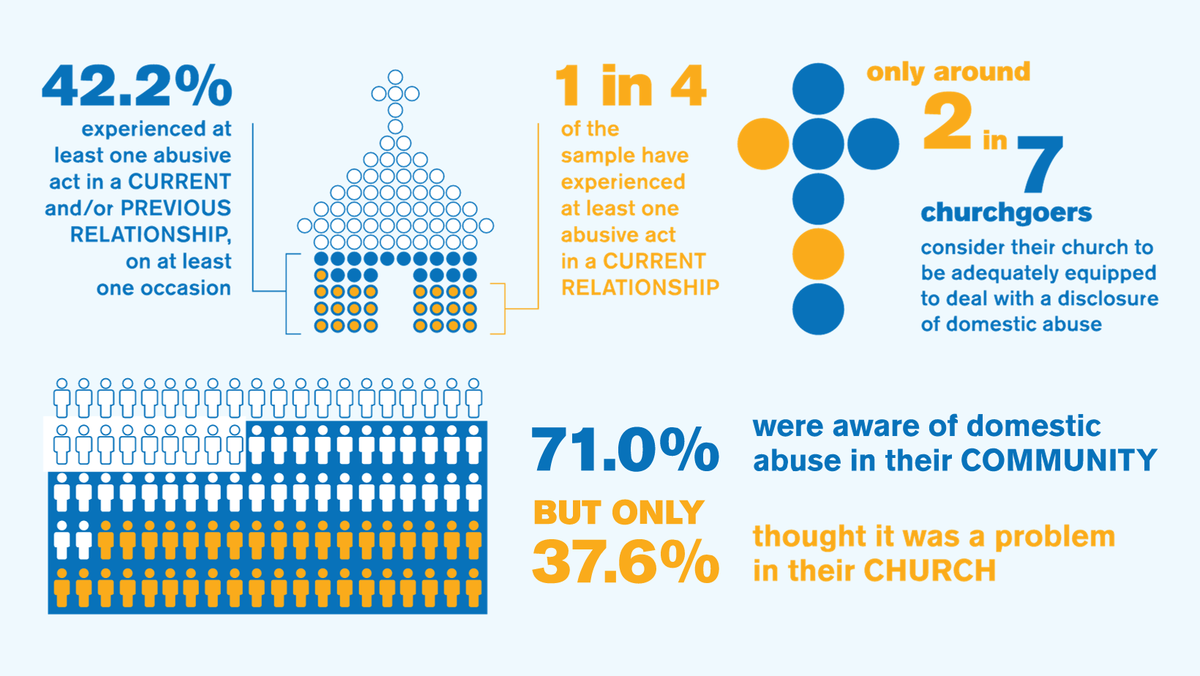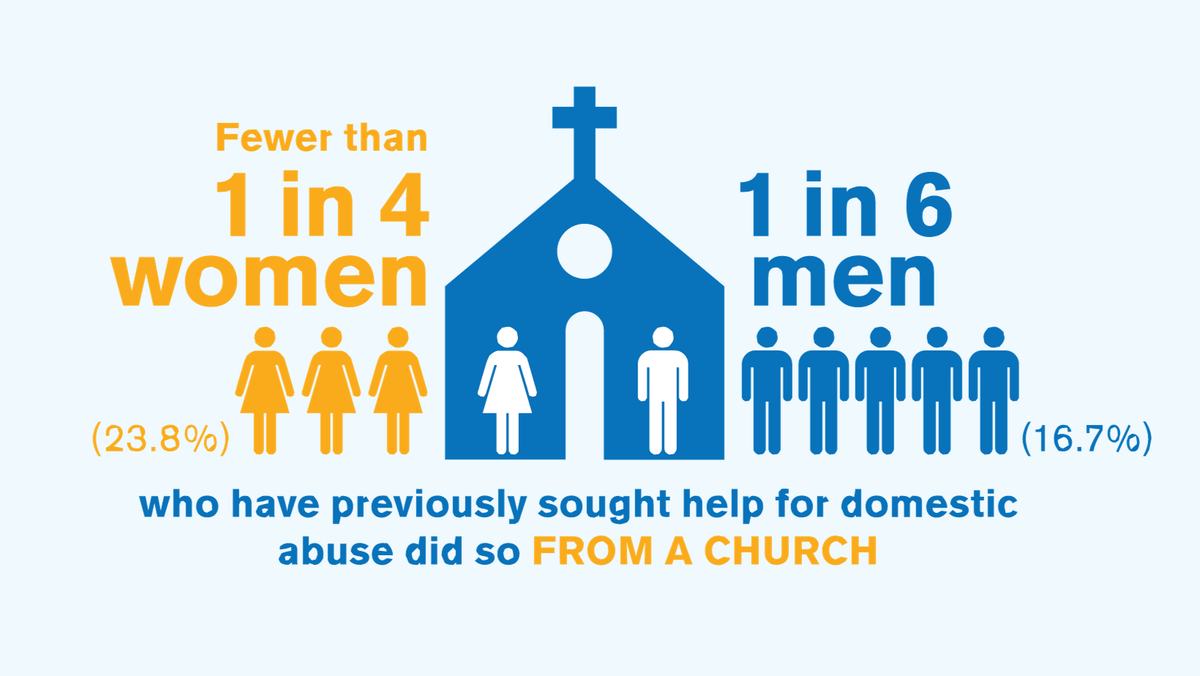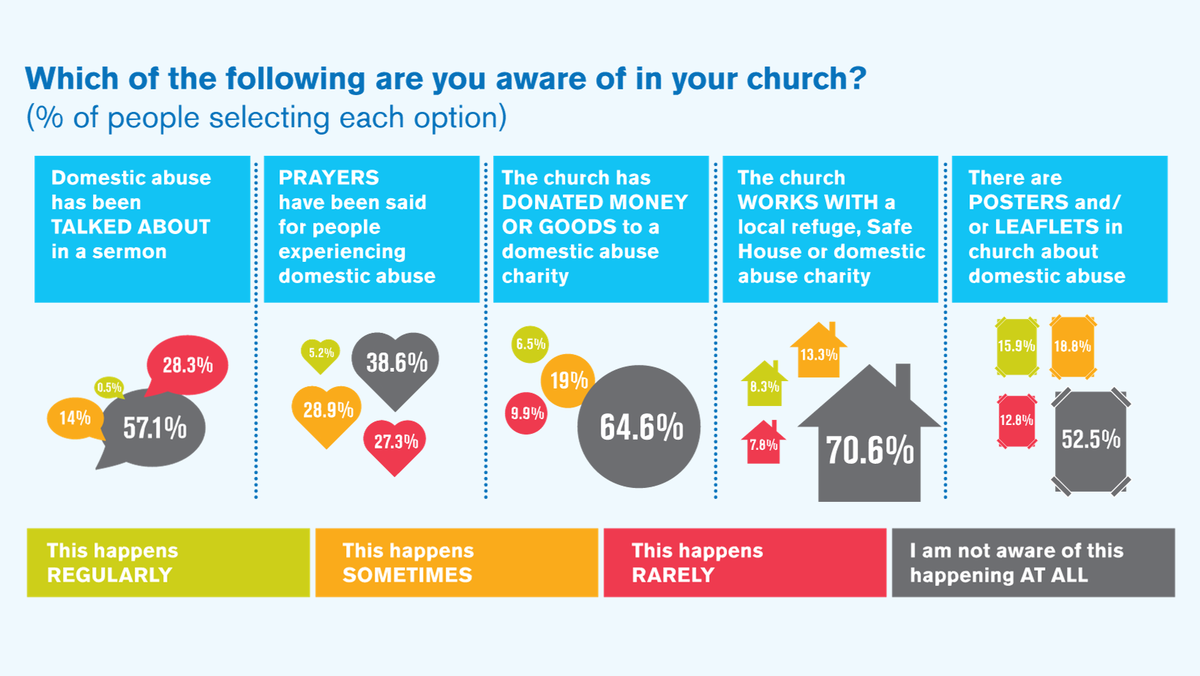In Churches Too
We know that domestic abuse can happen anywhere, in any community. We wanted to have solid evidence to share with church leaders and congregations, showing that domestic abuse happens in churches too. In March 2018, we released the results of 'In Churches Too: Church Responses to Domestic Abuse' .
We surveyed churchgoers and church leaders in Cumbria, Northwest England, asking questions about their experience of domestic abuse, how often topics to do with domestic abuse were mentioned in their churches, and how well-equipped they felt their churches were in responding to domestic abuse.
Key Findings
1 in 4 respondents had experienced domestic abuse in a current relationship, but only around 2 in 7 considered their church to adequately equipped to deal with a disclosure of domestic abuse.
Prevalence for each category of abuse (for example physical, sexual, financial and others) were higher for women than men. Women typically reported experiencing a higher number of impacts of domestic abuse than men ('impacts' include things like diminished self-esteem, feeling anxious or scared, stopping attending church).
Less than half of those who responded to the survey (42.9%) said they would seek help from their church for domestic abuse. Just under 60% said they would signpost a friend to church for help. Over half were not aware of domestic abuse being spoken about in a sermon, or posters or leaflets about domestic abuse being displayed. However, more than half said that prayers for people experiencing domestic abuse were said in their church 'sometimes' or 'regularly'.
The findings of this research show that domestic abuse happens in churches too; rates of domestic abuse within church communities seem to be no different from rates in wider society. The report also demonstrates that there is more to be done in church communities to equip leaders to respond to domestic abuse, so victim-survivors feel comfortable to seek support.



Download the key findings
Download an infographic of report's the key findings.
Download the infographic